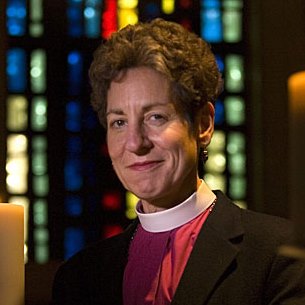I had just left the subway on my way back to the office in New York when a young man stopped me on the sidewalk. His name is Jesse Zink, and he turned out to be a YASC volunteer, soon to be on his way back to South Africa. YASC, Young Adult Service Corps, sent him to Mthatha (em-ta'-ta), where, he told me, learning to "be" rather than "do" is the hardest part. He actually lives and works at the Itipini medical clinic with HIV-infected children, particularly in the after-school programs offered there. Read more about his being (and doing) at http://mthathamission.blogspot.com.
YASC is an example of mission in this church. It sends adults under age 30 to work for a year in some part of the Anglican Communion beyond this church. It engages the passion many young people have for service to others, while at the same time inviting them into vocational discernment. Go to http://www.episcopalchurch.org/page/global-partnerships and click on Young Adult Service Corps under Offering Our Gifts to learn more.
Mission takes many forms, from working with sick children to engaging the (Lutheran) Church of Sweden in conversation about the possibility of greater partnership and even full communion.
Mission also looks like engaging our own political systems. In this season running up to a presidential election, we've heard a great deal about religion and politics. It's not a matter of the church endorsing candidates, which is inappropriate for many reasons — not least because we serve a diverse body of human beings who include both supporters and opponents of particular candidates, but, more importantly, because no individual candidate is ever going to fully represent God's political agenda (dream for creation).
Our role does include urging our members to learn all they can about the issues involved in elections and to discuss their understanding of what gospel values imply about those issues. The church's task includes equipping the saints to be fully competent members of society, informed by their faith. That doesn't happen if we are afraid to talk about challenging issues at church, like health care, abortion or the war.
We also may discover that the quality of Christian community is deepened and strengthened when we do find the courage to discuss our views with our neighbors and learn about theirs. I urge all qualified Episcopalians to register to vote and to cast an informed ballot. Pray about it first.
The church is politically involved on the national and international scene in many ways, perhaps most publicly around the Millennium Development Goals. We've adopted the MDGs as part of our first mission priority as a church because we believe they set us on the path toward building the reign of God. They don't go all the way to that great dream of God for a restored creation, but they do hold us accountable for making progress toward it.
This church has been a leader in raising consciousness here and around the world and in challenging our own government to meet the commitment it made in 2000. Leaders of the world's nations gathered at the United Nations on September 25 to recommit to those goals, and an interfaith body gathered at the Cathedral of St. John the Divine for Evensong that day to celebrate progress made, recommit to the work ahead and give encouragement for that work.
Mission also looks like rediscovering our history and making public confession for the church's involvement in the sin of slavery. That is an opportunity awaiting most of the dioceses of the Episcopal Church.
When we begin to dig under the surface, we discover that slave trading and slave holding existed in North and South and that slave owners included clergy, historic churches and seminaries.
It took not just years but decades and centuries before good Christians began to speak out and question this abuse of human dignity and the repudiation of the image of God in our brothers and sisters.
The impact of slavery continues to this day, in disproportional racial balances in our prisons and the enduring effects of removing men from the heart of their families. The economic consequences touch almost every American — when we look behind the recent past, we discover that profits from the slave trade and slave labor have mingled through most strands of our banking and industrial economy. None of us is clean. Recent immigrants cannot say this is only a matter for those families who have been here through many generations, for privilege continues to accrue to a portion of the population.
If you need help researching this issue, consult your local historical society or the history department in your state university, or contact one of the dioceses that has begun this exploration: Delaware, Maryland, Atlanta, Mississippi, New York, North Carolina and Southeast Florida. Watch the film Traces of the Trade to learn about slave trading by an Episcopal family in Rhode Island.
